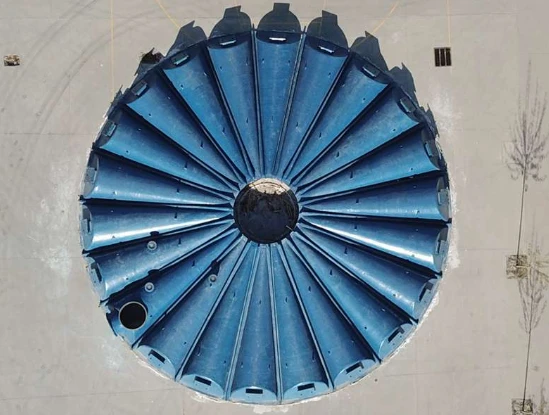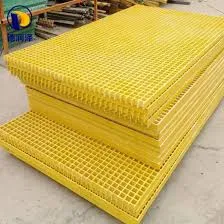
-
 Afrikaans
Afrikaans -
 Albanian
Albanian -
 Amharic
Amharic -
 Arabic
Arabic -
 Armenian
Armenian -
 Azerbaijani
Azerbaijani -
 Basque
Basque -
 Belarusian
Belarusian -
 Bengali
Bengali -
 Bosnian
Bosnian -
 Bulgarian
Bulgarian -
 Catalan
Catalan -
 Cebuano
Cebuano -
 China
China -
 China (Taiwan)
China (Taiwan) -
 Corsican
Corsican -
 Croatian
Croatian -
 Czech
Czech -
 Danish
Danish -
 Dutch
Dutch -
 English
English -
 Esperanto
Esperanto -
 Estonian
Estonian -
 Finnish
Finnish -
 French
French -
 Frisian
Frisian -
 Galician
Galician -
 Georgian
Georgian -
 German
German -
 Greek
Greek -
 Gujarati
Gujarati -
 Haitian Creole
Haitian Creole -
 hausa
hausa -
 hawaiian
hawaiian -
 Hebrew
Hebrew -
 Hindi
Hindi -
 Miao
Miao -
 Hungarian
Hungarian -
 Icelandic
Icelandic -
 igbo
igbo -
 Indonesian
Indonesian -
 irish
irish -
 Italian
Italian -
 Japanese
Japanese -
 Javanese
Javanese -
 Kannada
Kannada -
 kazakh
kazakh -
 Khmer
Khmer -
 Rwandese
Rwandese -
 Korean
Korean -
 Kurdish
Kurdish -
 Kyrgyz
Kyrgyz -
 Lao
Lao -
 Latin
Latin -
 Latvian
Latvian -
 Lithuanian
Lithuanian -
 Luxembourgish
Luxembourgish -
 Macedonian
Macedonian -
 Malgashi
Malgashi -
 Malay
Malay -
 Malayalam
Malayalam -
 Maltese
Maltese -
 Maori
Maori -
 Marathi
Marathi -
 Mongolian
Mongolian -
 Myanmar
Myanmar -
 Nepali
Nepali -
 Norwegian
Norwegian -
 Norwegian
Norwegian -
 Occitan
Occitan -
 Pashto
Pashto -
 Persian
Persian -
 Polish
Polish -
 Portuguese
Portuguese -
 Punjabi
Punjabi -
 Romanian
Romanian -
 Russian
Russian -
 Samoan
Samoan -
 Scottish Gaelic
Scottish Gaelic -
 Serbian
Serbian -
 Sesotho
Sesotho -
 Shona
Shona -
 Sindhi
Sindhi -
 Sinhala
Sinhala -
 Slovak
Slovak -
 Slovenian
Slovenian -
 Somali
Somali -
 Spanish
Spanish -
 Sundanese
Sundanese -
 Swahili
Swahili -
 Swedish
Swedish -
 Tagalog
Tagalog -
 Tajik
Tajik -
 Tamil
Tamil -
 Tatar
Tatar -
 Telugu
Telugu -
 Thai
Thai -
 Turkish
Turkish -
 Turkmen
Turkmen -
 Ukrainian
Ukrainian -
 Urdu
Urdu -
 Uighur
Uighur -
 Uzbek
Uzbek -
 Vietnamese
Vietnamese -
 Welsh
Welsh -
 Bantu
Bantu -
 Yiddish
Yiddish -
 Yoruba
Yoruba -
 Zulu
Zulu
Fiberglass Reinforced Plastic Pipes High-Strength & Corrosion-Resistant
- Introduction to Reinforced Plastic Pipes
- Technical Advantages of Fiberglass Reinforced Plastic (FRP) Pipes
- Performance Comparison: FRP Pipes vs. Traditional Materials
- Market Analysis: Leading Manufacturers of Reinforced Plastic Systems
- Customization Strategies for Industrial Applications
- Case Studies: FRP Solutions in Real-World Scenarios
- Future Trends in Reinforced Plastic Pipe Technology

(reinforced plastic pipe)
Understanding Reinforced Plastic Pipe Systems
Reinforced plastic pipes, particularly fiberglass reinforced plastic (FRP) variants, have revolutionized fluid transport systems across industries. These composite materials combine polymer resins with glass fibers, achieving tensile strengths up to 45,000 psi while maintaining corrosion resistance. The global FRP pipe market reached $4.7 billion in 2023, driven by 8.2% annual growth in chemical processing and wastewater sectors.
Technical Advantages of Fiberglass Reinforced Solutions
FRP pipes demonstrate superior technical specifications compared to metallic alternatives:
- ▶︎ 72% lower weight than steel equivalents
- ▶︎ 150% greater hydraulic efficiency
- ▶︎ 0.00015 in/in/°F thermal expansion coefficient
Laboratory tests show FRP maintains structural integrity at temperatures ranging from -60°F to 300°F, outperforming PVC and HDPE in thermal cycling scenarios.
Material Performance Comparison
| Parameter | FRP | Steel | PVC |
|---|---|---|---|
| Corrosion Resistance | 95% | 45% | 82% |
| Lifecycle Cost (20 yrs) | $18.7/m | $42.3/m | $27.9/m |
| Installation Time | 3.2 hrs | 6.8 hrs | 4.1 hrs |
Manufacturer Capability Analysis
Leading FRP pipe producers demonstrate distinct specialization areas:
- Company A: High-pressure systems (up to 450 psi)
- Company B: Chemical-resistant liners (pH 0-14 tolerance)
- Company C: Large-diameter pipes (96" maximum)
Custom Engineering Approaches
Advanced manufacturing techniques enable:
- ✓ Variable resin matrices (epoxy, vinyl ester, polyester)
- ✓ Wall thickness optimization (±0.01" precision)
- ✓ Hybrid reinforcement configurations
Typical lead times range from 4-8 weeks for custom FRP pipe orders, depending on diameter and resin specifications.
Industrial Application Evidence
A recent refinery project achieved:
• 34% cost reduction vs. stainless steel
• Zero maintenance over 5-year period
• 99.8% flow efficiency retention
Innovation Pathways for Reinforced Plastic Pipe Systems
Emerging FRP technologies integrate smart monitoring systems and nano-enhanced resins. Current R&D focuses on achieving 600 psi pressure thresholds while reducing production costs by 18-22%. Industry projections estimate 12.4% CAGR for advanced FRP pipe solutions through 2030.

(reinforced plastic pipe)
FAQS on reinforced plastic pipe
Q: What are the primary advantages of using fiberglass reinforced plastic pipes?
A: Fiberglass reinforced plastic (FRP) pipes offer high corrosion resistance, lightweight construction, and exceptional durability, making them ideal for harsh environments like chemical processing and wastewater systems.
Q: How does reinforced plastic pipe compare to traditional metal piping systems?
A: Reinforced plastic pipes are lighter, resistant to rust and chemical degradation, and require less maintenance than metal pipes, though they may have lower temperature tolerance limits.
Q: What industries commonly use fiberglass reinforced plastic tanks?
A: Industries such as oil and gas, water treatment, and agriculture utilize fiberglass reinforced plastic tanks for storing corrosive liquids, fuels, and chemicals due to their leak-proof and non-reactive properties.
Q: Can reinforced plastic pipes handle high-pressure applications?
A: Yes, depending on the resin and reinforcement design, fiberglass reinforced plastic pipes can withstand high-pressure conditions while maintaining structural integrity and longevity.
Q: What maintenance is required for fiberglass reinforced plastic tanks?
A: FRP tanks require minimal maintenance—periodic inspections for surface damage, cleaning to prevent debris buildup, and ensuring proper chemical compatibility are typically sufficient for long-term performance.
Latest news
-
Fiberglass Reinforced Plastic Pipes High-Strength & Corrosion-ResistantNewsMay.19,2025
-
Boost Data Speed Utilize RTRP Protocol for Efficient TransmissionNewsMay.19,2025
-
High-Performance Rock Drill Rod for MF Bits Mining & ConstructionNewsMay.18,2025
-
GRP & FRP Car Bodies Lightweight & Durable Solutions Car & Boat Body ExpertsNewsMay.18,2025
-
Lightweight FRP Walkway Grating Corrosion-Resistant & High Load CapacityNewsMay.18,2025
-
Durable Fiberglass Water Storage Tanks Corrosion-Resistant & LightweightNewsMay.17,2025









